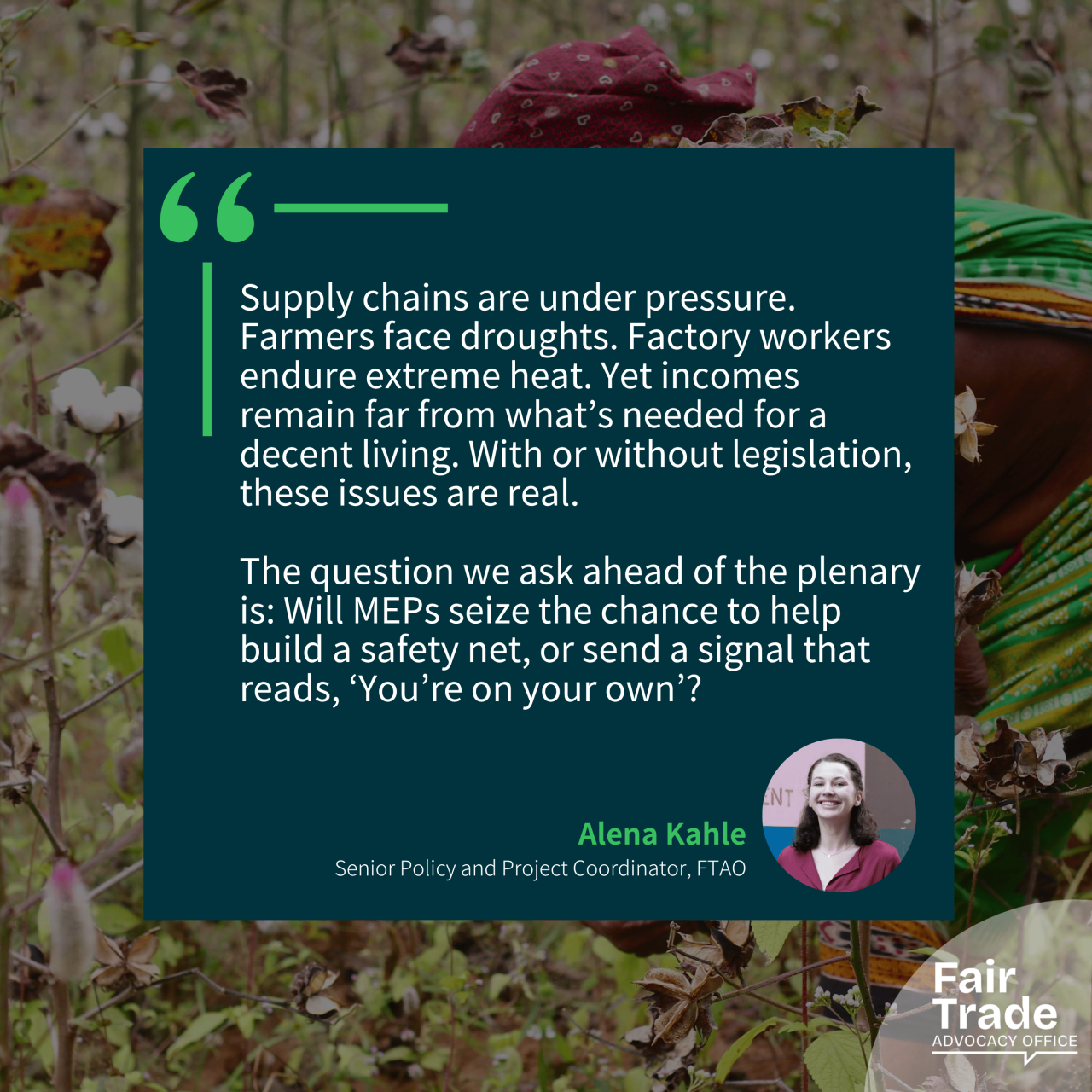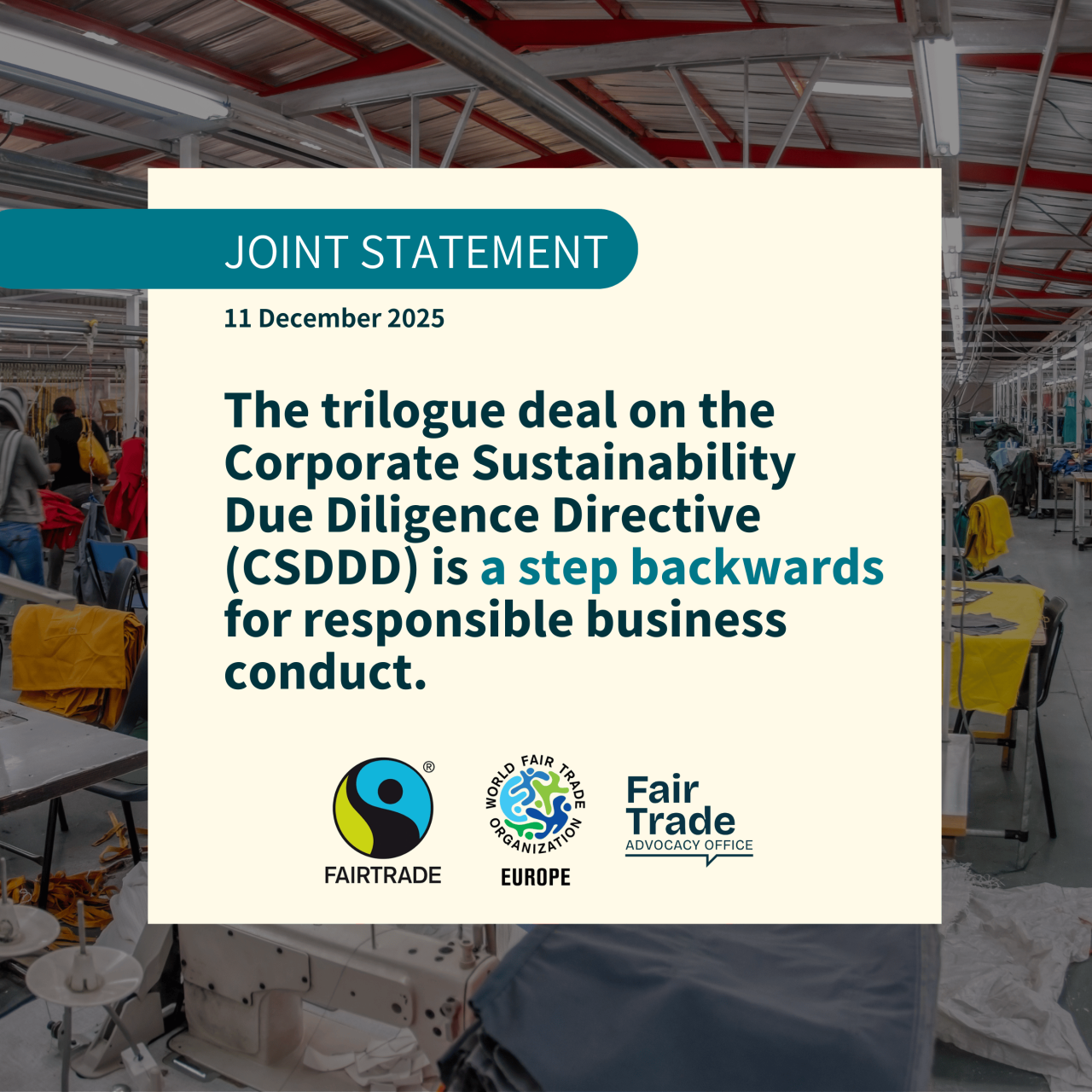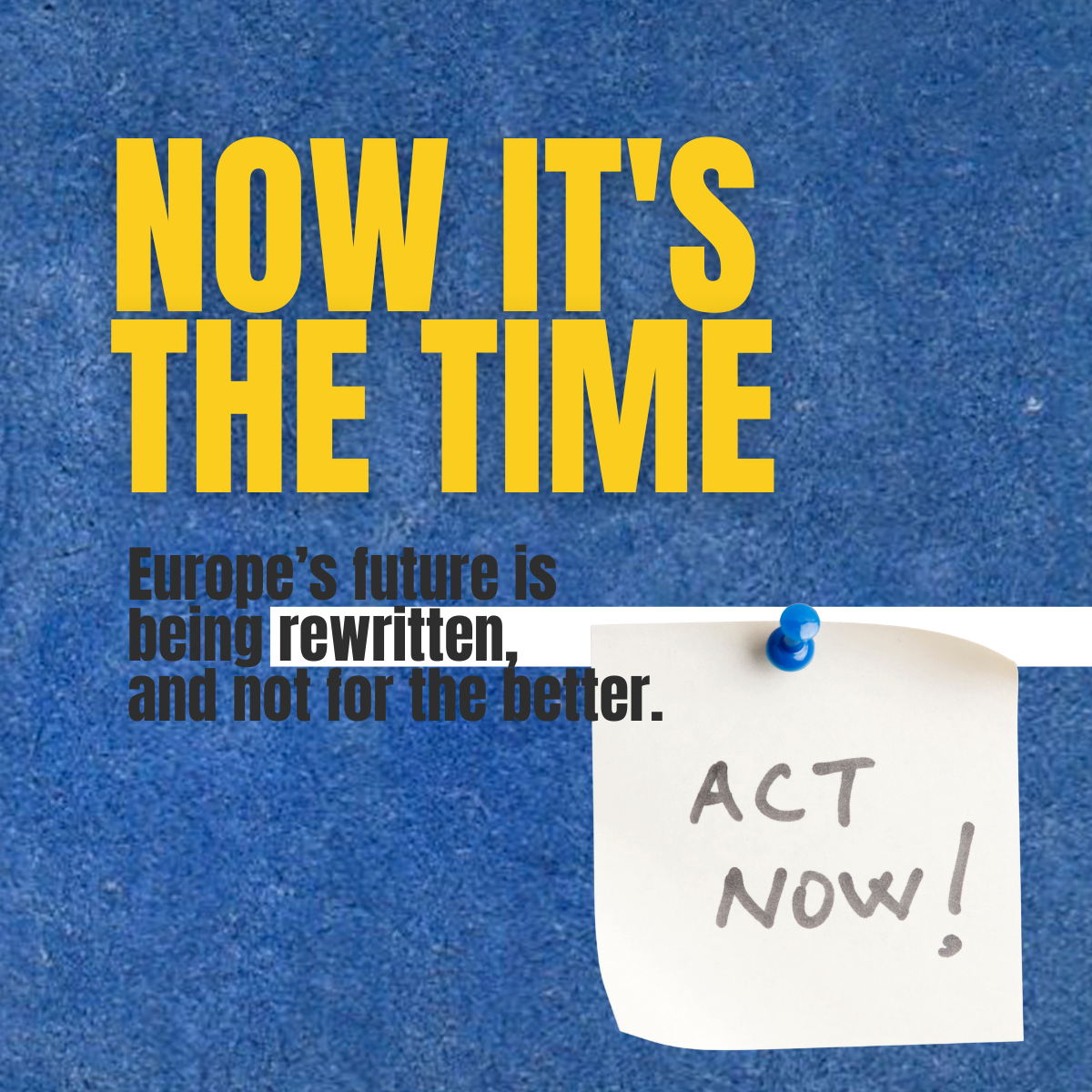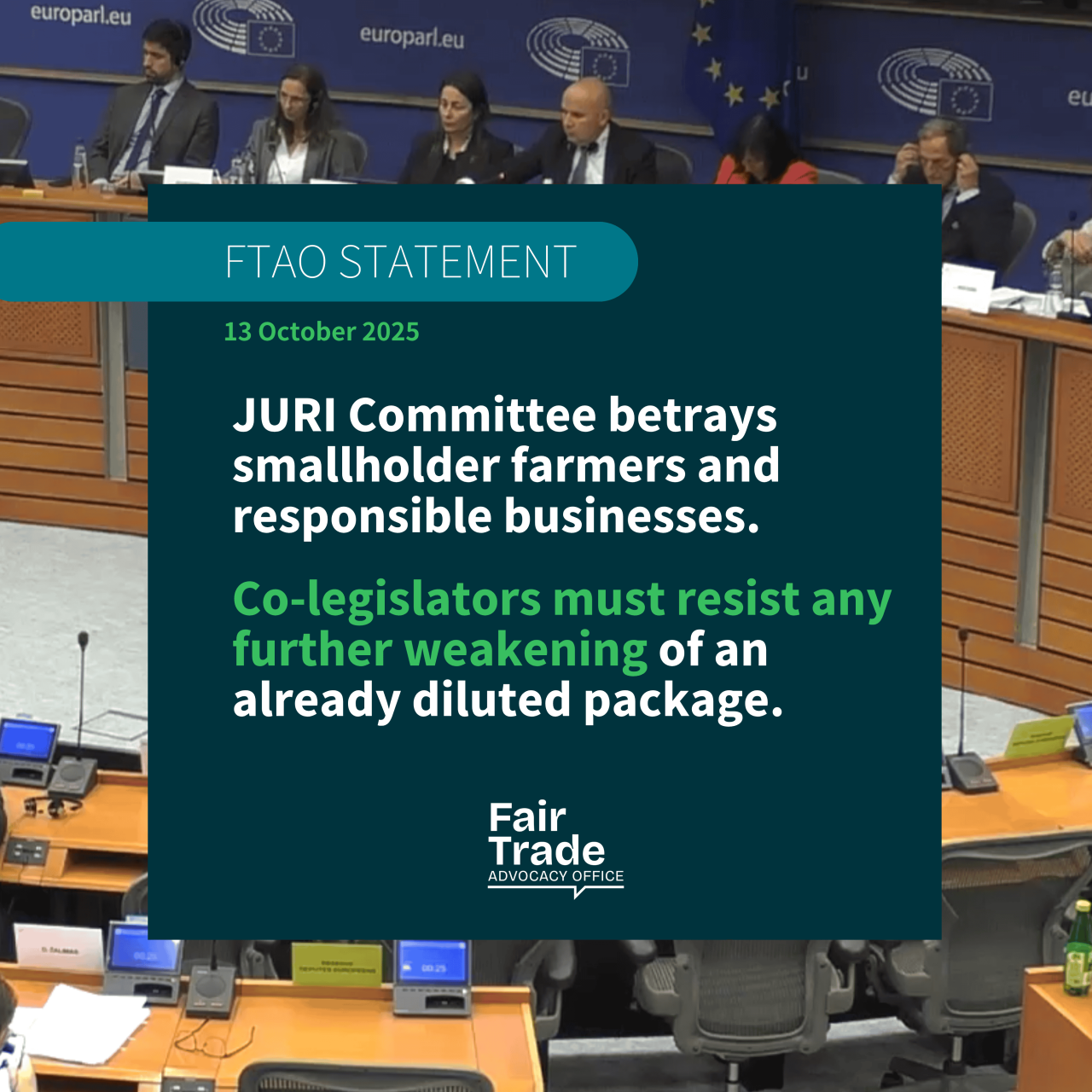Fair Trade Movement urges MEPs to seize the opportunity to strengthen CSDDD in upcoming plenary vote

After today’s decision at the European Parliament to table the text of the Committee on Legal Affairs (JURI), the Fair Trade Movement sees some potential for improvements in the CSDDD. However, we are deeply worried that this latest turn in the process could further weaken the European Parliament position, putting smallholder farmers, artisans, workers and responsible businesses across global supply chains at serious risk.
"Supply chains are under pressure. Farmers face droughts. Factory workers endure extreme heat. Yet incomes remain far from what’s needed for a decent living. With or without legislation, these issues are real. The question we ask ahead of the plenary is: Will MEPs seize the chance to help build a safety net, or send a signal that reads: ‘You’re on your own.'" Alena Kahle, Senior Policy and Project Coordinator. Fair Trade Advocacy Office (FTAO).
We welcomed improvements to the European Commission’s proposal, including the recognition of the need for a risk-based approach and minimal safeguards against irresponsible disengagement. However, the Fair Trade Movement hopes that further deliberation by the Parliament will strengthen its position and ensure the Directive delivers on its promise to protect smallholder farmers, workers, artisans and responsible businesses across global supply chains.
"For years, companies have been identifying risks across the supply chain. Prioritising and channelling resources where risks are the most severe enables effective action to prevent, mitigate and remediate serious human rights violations and environmental harm. We simply cannot afford to lose this key UNGP principle in further negotiations." Meri Hyrske-Fischer, Senior Human rights advisor, Fairtrade International.
This vote comes at a time when citizens are calling for stronger corporate accountability. Over 75% of EU citizens want to see companies being held accountable for human rights and environmental abuses in their value chains. Yet, while countries around the world are strengthening due diligence requirements, the EU risks falling behind.
In particular, the Fair Trade Movement is concerned that the JURI committee’s position, negotiated by rapporteur Mr Jörgen Warborn (Group of the European People's Party), falls too short in several areas that are key to ensuring supply chain resilience, including:
- Excludes most companies by limiting due diligence to companies with over 5000 employees and €1.5 billion turnover. This could further reduce by 70% the number of companies covered under the Directive from compliance - a scope already narrowed in previous negotiations - undermining the Directive’s purpose and penalising those who have already invested in due diligence.
- Fails to reinstate all safeguards on responsible disengagement, potentially encouraging cut and run. This is despite bringing back some protections removed by the Omnibus I proposal, such as requiring companies to engage with stakeholders prior to suspension and specifying that business suspension cannot be indefinite.
- Restricts meaningful dialogue between buyers and suppliers during risk identification, allowing companies to request information from business partners only ‘as a last resort’ during in-depth assessments. Addressing deeply rooted rights violations of living wages and living incomes requires open dialogues on critical issues like pricing, purchasing practices and traceability.
"We welcome that Parliament has upheld important parts of the CSDDD, but don’t forget that its position eliminates other, vital elements, like safeguards against “cut’n’run” by EU companies and facilitation of meaningful dialogue between buyers and suppliers. Fair Trade businesses across Europe with Human Rights Due Diligence baked into their business model have proven themselves both resilient and competitive for decades. Weakening the CSDDD even further will only manifest today’s uneven playing field for responsible businesses and harm competitiveness - not bolster it!" Mikkel Kofod Nørgård, Regional Coordinator, World Fair Trade Organization-Europe.
Ahead of the November plenary vote, the Fair Trade Movement urges Members of the European Parliament to seize this vital opportunity to correct the significant shortcomings of the current CSDDD text, and resist any attempts to further weaken its provisions. We call on MEPs to strengthen the Directive by introducing key safeguards that reflect the realities of global supply chains and the expectations of EU citizens by:
- Retaining the risk-based approach as endorsed by the INTA and DROI committees, and reflected in the final JURI text;
- Ensuring responsible disengagement by requiring companies to engage with stakeholders prior to suspending business relationships and mandating that any termination of business relations be carried out in a responsible manner;
- Recognising NGOs as key stakeholders, in line with the recommendations from the DROI subcommittee;
- Facilitating meaningful engagement during risk assessments, allowing companies to request necessary information to address pervasive rights violations, such as the lack of living incomes and living wages, while ensuring that such requests are proportionate, targeted and collaborative.
Contact
Alena Kahle, Senior Policy and Project Coordinator, Fair Trade Advocacy Office. kahle@fairtrade-advocacy.org
Meri Hyrske-Fischer, Senior Human rights advisor, Fairtrade International. meri.hyrske-fischer@fairtrade.fi
Mikkel Kofod Nørgård, Regional Coordinator, World Fair Trade Organization-Europe. coordination@wfto-europe.org
.png)

More From The Workstream

Trilogue deal on CSDDD is a step backwards for responsible business conduct

JOINT STATEMENT: Call for European Parliament to deliver a credible and ambitious approach on Omnibus I

JURI Committee betrays smallholder farmers and responsible businesses; Co-legislators must resist any further weakening of an already diluted package
